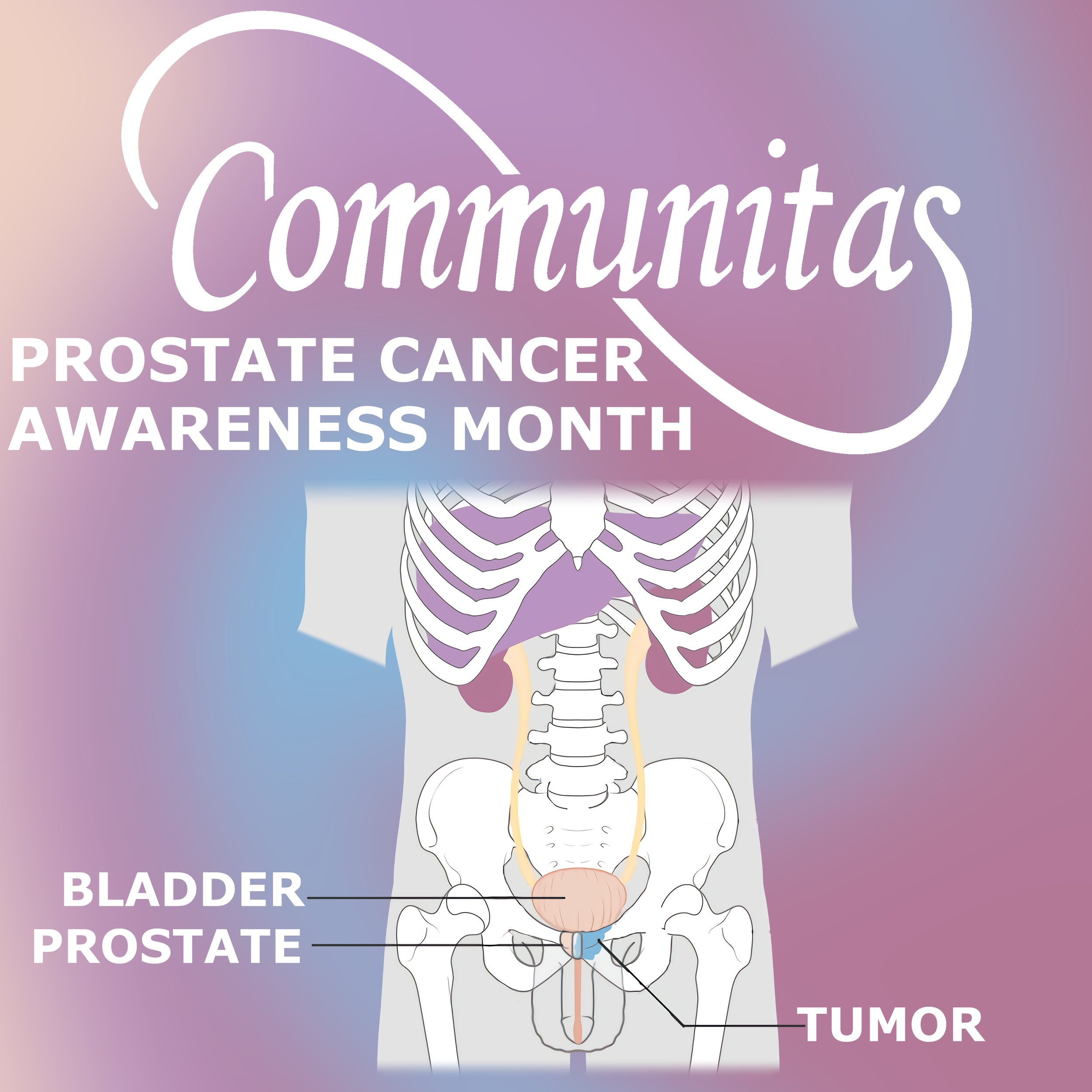Prostate Cancer Awareness Month
Communitas is a nonprofit that provides Direct Support Professional assistance in Poulsbo, Silverdale, Bremerton, and Port Orchard for adults with intellectual/developmental disabilities.
Did you know that September is a month dedicated to recognizing many different types of cancers? Today we’re going to be looking at Prostate Cancer.
Prostate cancer is typically a slow-growing cancer of the prostate gland. In some cases the cancer can grow rapidly. Prostate cancer is the most common cancer for people whose sex is male besides skin cancer, and 1 in 7 will be diagnosed with the disease in their lifetime. About 174,600 people whose sex is male in the United States will develop prostate cancer this year, according to the American Cancer Society. But because it usually progresses slowly, the death rate is relatively low at around 31,600 per year.
Older people are more likely to get prostate cancer. About 60 percent of cases are diagnosed aged 65 or older, and it is uncommon for people under 40.
For people with IDD (Intellectual and Developmental Disabilities) the incidence of cancer is comparable with the general population. The three main causes of earlier death for people with IDD whose sex is male are cardiovascular diseases, respiratory diseases, and neoplasms. People with IDD are living longer than they ever have before, thus making them more susceptible to illnesses usually associated with old age, including cancer. People with IDD are still dying younger than the general population (65 years for people whose sex is male and 63 years old for people whose sex is female). The mounting evidence as to why is the substantial health inequalities, leading to poorer outcomes. Generally speaking, after a review of inequalities in end of life care, it was concluded that people with IDD can experience poorer quality of care at the end of their lives because providers do not always understand or fully consider their needs. There is a risk of professionals attributing the signs and symptoms of ill health to the intellectual disability itself, instead of to the underlying illness – a phenomenon known as ‘diagnostic overshadowing’.
For more information, please visit:
https://www.cancerhealth.com/basics/health-basics/prostate-cancer
https://www.frontiersin.org/articles/10.3389/fpubh.2014.00208/full

